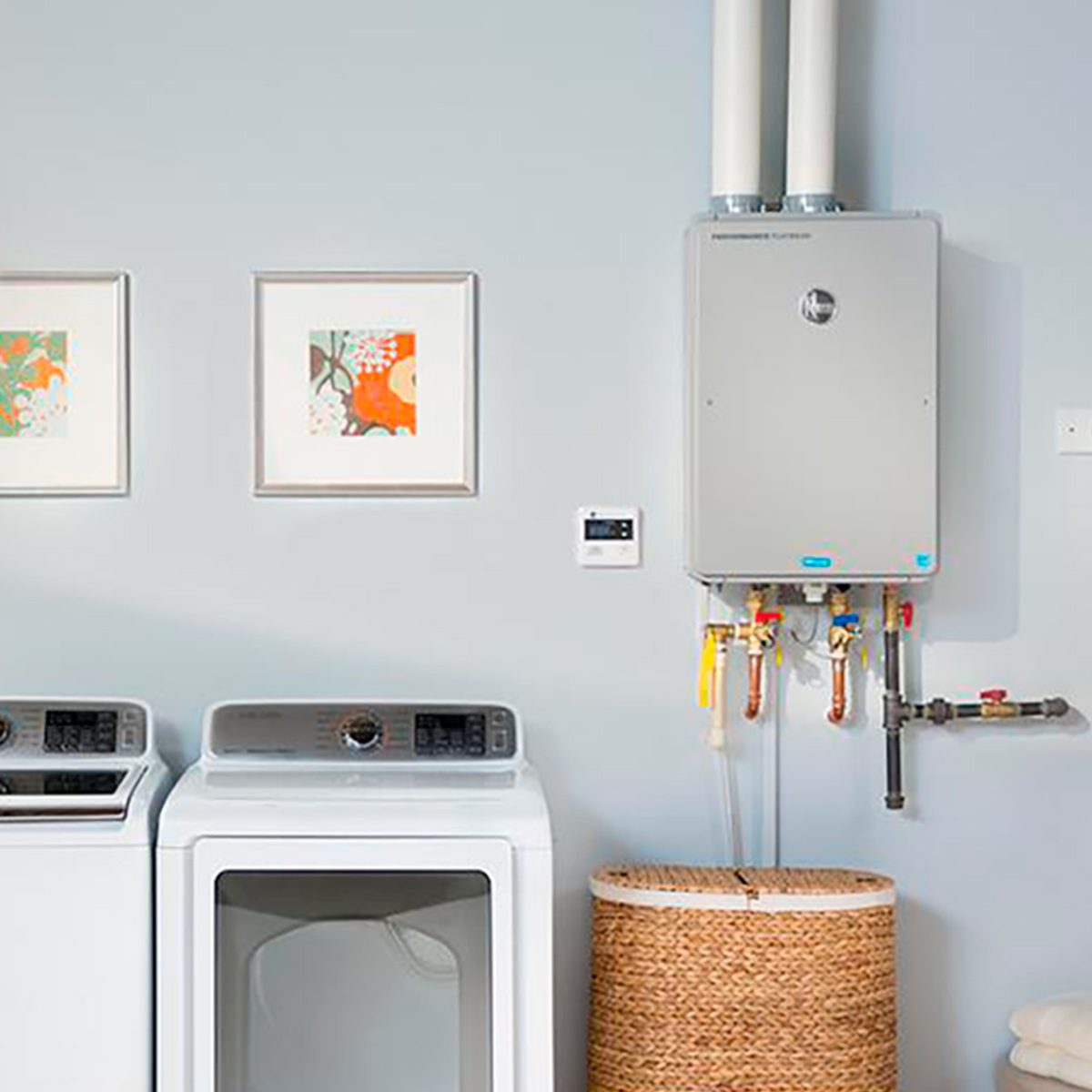Listed here in the next paragraphs you might get additional outstanding news when it comes to Pros and Cons of Tankless Water Heater.

In a globe where ease and performance preponderate, it's no surprise that house owners are regularly looking for smarter methods to manage their home's energy intake and convenience. One advancement that has progressively acquired popularity is the tankless hot water heater. However what exactly makes these systems stick out from the standard tank-based versions a lot of us matured with? Allow's dive in and explore the benefits of tankless hot water heater, aiding you choose if it's time to make the switch in your house.
Introduction
Image this: you step into the shower after a lengthy day, anticipating a relaxing cascade of hot water, only to be welcomed by icy beads since the last person used all of it up. Noise acquainted? Standard water heaters save a fixed quantity of hot water, meaning you go to the mercy of that tank's supply. Tankless systems, on the other hand, warm water as needed. No more running out mid-shower, say goodbye to fumbling with routines just to make sure warm water is available.
Understanding Tankless Hot Water Heater
What Are Tankless Hot Water Heater?
Tankless water heaters, occasionally referred to as on-demand or instantaneous water heaters, offer hot water just as it's required. Rather than storing gallons of pre-heated water, these units kick right into action the moment you activate the tap. Water passes through a heat exchanger, warming up in real-time, suggesting you get an undisturbed flow of hot water without the demand for a big container sitting idly by.
How Do They Vary from Typical Solutions?
Typical heaters hold a tank of hot water, using energy to maintain that container at a regular temperature. Tankless systems remove the standing supply, reducing thrown away energy and the large impact of a huge cyndrical tube. Basically, you're updating from a "stockpile" frame of mind to a "made-to-order" method.
Usual Types of Tankless Units
Tankless hot water heater usually are available in 2 varieties: gas and electrical. Gas models tend to provide higher flow rates, ideal for bigger houses, while electrical versions frequently offer smaller sized homes and are generally much easier to set up. Furthermore, some systems are designed for point-of-use (offering one component) while others can manage the whole home's hot water requirements.
Trick Benefits of Tankless Water Heaters
1. Unlimited Warm Water Supply
Ever before needed to schedule showers so every person gets their reasonable share of hot water? With tankless, that ends up being a thing of the past. As long as the heater's flow ability isn't gone beyond, you can take back-to-back showers without turning into a popsicle.
2. Power Effectiveness and Cost Financial Savings
No more heating a giant tank's worth of water and keeping it cozy all the time. Tankless heating units minimize standby energy losses, which can decrease utility bills. While the first expense could be higher, the lasting savings frequently warrant the investment.
3. Space-Saving Style
If your home is short on storage space, eliminating the bulky storage tank liberates useful room. Tankless units are small and can typically be installed on wall surfaces, tucked away in edges, or mounted in tight energy closets without hogging the whole space.
4. Longer Life-span
A well-kept tankless water heater can outlive its tank-based cousin. Typical tanks could last 10-15 years, while tankless models can maintain chugging along for two decades or even more, making them a solid financial investment in time.
5. Improved Water High Quality
Saving water in a container can sometimes lead to sediment buildup or a somewhat "off" taste. With tankless systems, fresh water is warmed right away, minimizing the opportunities of debris accumulation and potentially providing cleaner-tasting water.
Factors to consider Before Switching
Though the advantages are compelling, it's a good idea to consider a few variables prior to totally devoting.
Preliminary Financial Investment Expenses
Tankless heating units usually come with a greater in advance cost. In between the unit itself and potential installment adjustments, the first expense could give you sticker label shock. However bear in mind to watch it as a long-term financial investment.
Installation Needs
Depending on your home's infrastructure, you could need added electric ability or gas line upgrades. Guarantee you recognize the installment requirements and talk to a specialist to avoid shocks.
Assessing Your Home's Water Use Patterns
If your household all at once uses multiple fixtures with high hot water need, make sure the unit's circulation price fulfills your needs. Knowing your usage patterns aids you select the ideal size and kind of tankless heating unit.
Maintenance and Treatment Tips
Tankless systems are fairly low upkeep, however they aren't set-it-and-forget-it appliances.
Regular Cleansing and Descaling
Hard water minerals can accumulate in the warm exchanger, influencing effectiveness. Normal descaling (often advised every year) keeps the device going for peak performance.
Yearly Specialist Assessments
A yearly checkup from an expert makes certain small problems are captured early. They'll examine the device's performance, try to find leaks, and assist keep optimal effectiveness.
Making Certain Correct Air Flow
For gas models, proper ventilation is necessary to safely expel exhaust gases. Make sure airing vent systems are tidy and correctly mounted to avoid any kind of prospective security hazards.
Contrasting Different Brands and Versions
Not all tankless hot water heater are produced equal.
Investigating Trusted Manufacturers
Search for trustworthy brands with a history of producing high quality systems. A trustworthy producer usually provides far better client assistance and longer warranties.
Reviewing Testimonials and User Responses
Customer evaluations and responses from neighbors or friends who have actually gone tankless can offer important understandings. Sometimes, real-life experiences can be much more telling than advertising pamphlets.
Installment: Do It Yourself or Specialist?
While some homeowners cherish tackling projects themselves, tankless installation may not be the very best time to break out the toolbox.
Advantages and disadvantages of Do It Yourself Installment
A do it yourself set up could save money, but it includes dangers. Inaccurate installation can result in ineffectiveness or safety concerns. If you come in handy and have experience, it could be viable-- however proceed with caution.
When to Call a Specialist Plumbing
For many, calling a professional makes sure everything's done appropriately. An expert plumber comprehends neighborhood codes, sizing requirements, and venting specifications, lowering the risk of accidents.
Taking full advantage of Performance
You've purchased a tankless system-- currently maximize its performance.
Optimal Temperature Setups
Many people establish their devices in between 120-140 F. Adjusting the temperature can enhance comfort and savings. Experiment to discover a pleasant place that doesn't squander energy.
Coupling With Low-Flow Fixtures
Wish to extend your device's capabilities? Think about setting up low-flow showerheads and taps. They decrease water usage, enabling your tankless system to deliver a stable stream of hot water without stressing.
Environmental Effect
Tankless hot water heater line up with greener living goals.
Reduced Carbon Impact
By utilizing much less energy and just home heating water as needed, tankless systems can decrease your home's carbon footprint, lowering your ecological impact.
Preserving Natural Resources
Less power consumption and less wasted warm water translate into less natural resources being utilized, an ecological win-win.
That Profits A Lot Of from Tankless Heating systems?
The appeal of tankless heating systems is that they can suit a variety of houses.
Big Family Members vs. Solitary Residents
Large households might love the countless warm water supply, while solitary owners value the energy cost savings from not heating an entire container for simply a single person's morning shower.
Property Owners with Limited Room
If your home is short on square video footage, shedding the large tank maximizes room for various other fundamentals-- or maybe just extra elbow room.
Eco-Conscious Customers
Going tankless aligns with environmentally friendly worths, guaranteeing you're not losing energy or sources.
Future Patterns in Tankless Hot Water Heater
The world of home appliances is ever-evolving, and tankless water heaters are no exemption.
Smart Home Combination
Picture changing your water heater's temperature level using an application or getting upkeep informs on your phone. As smart home technology advances, we'll see even more connection and ease.
Advancements in Innovation
R&D is frequently boosting warmth exchangers, making devices extra reliable and sturdy. Future versions could be also quieter, much more portable, and far better fit for varying climates.
Verdict
Selecting a tankless water heater is more than simply updating your home's hot water system; it's buying long-lasting comfort, power effectiveness, and a greener way of life. By considering your home's water usage, bearing in mind setup requirements, and devoting to normal upkeep, you can appreciate a constant stream of warm water without the baggage of a bulky tank. As modern technology progresses, you can look forward to also smarter, much more efficient tankless remedies that not just make your life simpler but likewise profit the planet.
Pros and Cons of Tankless Water Heaters
Tankless Water Heater Pros
Saves Energy: Simply put, you re spending less energy to create hot water, so your total carbon footprint goes down, not to mention your bills. Lasts Longer Than Storage Tanks: Storage tank units need to be replaced every 15 years or so. But tankless units? They can last for 30 years before they give out on you. Constant Hot Water: Need to take a shower and don t want the water running cold? Awesome it won t. The water will stay hot the entire time because it creates hot water on demand. Saves You Money: Less water usage equals less money. Beyond that, you re not paying to keep water hot 24/7. Those savings add up quickly. Better for the Environment: Less water waste is better for everyone. It saves you money, but it s also environmentally conscious at the same time. Tankless Water Heater Cons
It Can Take a Minute: Depending on your specific unit and its placement, it can take anywhere from 10 seconds to 2 minutes to fully heat up. Because there s no storage tank, it heats water as you need it. Upfront Purchase Price: While we talked about their longevity, there s sticker shock when you look at brand-new tankless units to install. It pays for itself, but it s still a big chunk of change at first. Has its Limits: If you run multiple appliances at once, such as the dishwasher, washing machine, and maybe you take a shower at the same time, there might not be enough hot water. https://www.airsouthnow.com/blog/water-heater-service/pros-and-cons-of-tankless-water-heaters/

I discovered that article about Unveiling the Hot Trend: The Benefits of Tankless Water when doing a lookup on the internet. If you please take the time to share this blog post if you enjoyed reading it. Thanks for your time. Come back soon.
Call Today